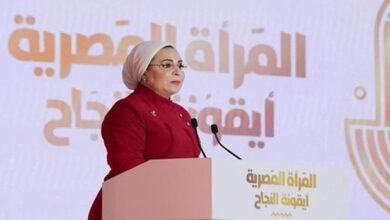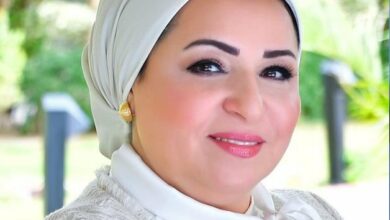Thousands of Christians and Muslims clashed Tuesday, with one Christian man killed and scores wounded as anger rose over the burning of a church in a Cairo suburb.
It was the second burst of sectarian fighting in two days and the latest in a string of violent protests over a variety of topics as simmering unrest continues nearly a month after mass protests led to the ouster of President Hosni Mubarak.
The violence erupted after Coptic Christians held protests in several locations in Cairo against perceived persecution by the country's Muslim majority.
The Christians have been angered by last week's burning by a Muslim mob of a church in a Cairo suburb. Egypt's military rulers have since pledged to rebuild the church, and Prime Minister Essam Sharaf met Monday with the protesters.
But the protesters said they wanted more steps to improve the status of Christians.
About 2000 of them cut off a main road running on the eastern side of the city and pelted motorists with rocks. Another crowd of about 1000 protested outside the TV building in downtown Cairo.
The group, which included a group of garbage collectors, who are predominantly Christian, demanded equal rights and better quality of life. The clashes broke out when they were confronted by Muslims, witnesses said.
At least one Christian man was killed and about 100 others wounded in the fighting, according to an Egyptian hospital official, who spoke on condition of anonymity because he was not authorized to release the information.
Even before Egypt's uprising unleashed a torrent of discontent, tensions had been growing between Christians and Muslims in the country. On New Year's Day, a suicide bombing outside a Coptic church in the port city of Alexandria killed 21 people, setting off days of protests. Barely a week later, an off-duty policeman boarded a train and shot dead a 71-year-old Christian man and wounded his wife and four others.
Elsewhere in Cairo, a protest by hundreds of Egyptian women demanding equal rights and an end to sexual harassment turned violent Tuesday when crowds of men heckled and shoved the demonstrators, telling them to go home where they belong.
The women – some in headscarves and flowing robes, others in jeans – had marched to Cairo's central Tahrir Square to celebrate International Women's Day. But crowds of men soon outnumbered them and chased them out. "They said that our role was to stay home and raise presidents, not to run for president," said Farida Helmy, 24, a journalist.
Men scolded protesters and said their concerns were not urgent in the aftermath of the uprising. When the women argued back, some were verbally abused or groped. Others were beaten and had to be ripped away from the groups of men.
Mustafa Hussein, 30, said many protesters had to flee the area and hide in a park nearby. "They were running for their lives, and the army had to fire a shot in the air to break up the mob chasing them," Hussein said.
Sexual harassment remains widespread in Egypt, where women often are afraid to report sexual assault or harassment for fear they and their families will be stigmatized.
Also Tuesday, an Egyptian court rejected an appeal by Mubarak and his family against a top prosecutor's move to seize funds that could total in the billions of dollars. The decision clears the way for a criminal investigation and a possible trial of Egypt's former leader.




